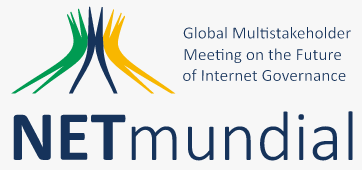Lynn St. Amour, Senior Fellow, GSN – 2nd in a series of posts from the NETmundial meeting on the Future of Internet Governance in Brazil this week:
 In Don Tapscott’s Understanding the New Multi-Stakeholder Models for Global Cooperation, Problem Solving and Governance, he states, “There is a fundamental change underway regarding how global problems can be solved, and perhaps how we govern ourselves on this shrinking planet. Emerging non-state networks of civil society, private sector, government and individual stakeholders are achieving new forms of cooperation, social change and even the production of global public value.” NETmundial was one such “new form,” combining elements of multi-lateral and multi-stakeholder processes.
In Don Tapscott’s Understanding the New Multi-Stakeholder Models for Global Cooperation, Problem Solving and Governance, he states, “There is a fundamental change underway regarding how global problems can be solved, and perhaps how we govern ourselves on this shrinking planet. Emerging non-state networks of civil society, private sector, government and individual stakeholders are achieving new forms of cooperation, social change and even the production of global public value.” NETmundial was one such “new form,” combining elements of multi-lateral and multi-stakeholder processes.
NETmundial was triggered by the revelations last year that the US government was carrying out mass surveillance and in particular spying on Brazilian President Dilma Rousseff. The meeting was convened in an open and multi-stakeholder fashion to discuss two issues: Internet Governance Principles, and a Roadmap for the future evolution of the Internet Governance Ecosystem.
In response to calls for various Internet Governance fora to have more formal outputs (recommendations, agreed principles, etc.) the organizers—the Brazilian Internet Steering Committee and /1Net—experimented with an innovative process. The meeting was preceded by an online public consultation of a draft outcome document prepared by a high-level “multi-stakeholder committee” comprised of ministerial representatives of 12 countries plus 12 members of the multi-stakeholder international community. The review of the document continued during the meeting itself through a quite lengthy series of interventions, all commenting on the draft document.
The primary basis for the document was Human Rights and Shared Values and this was very widely (but not universally) supported. The final document states: “Human rights are universal as reflected in the Universal Declaration of Human Rights and that should underpin Internet governance principles. Rights that people have offline must also be protected online…”
The second part was the Roadmap for the Future Evolution of Internet Governance. This drew heavily on the Tunis Agenda and the World Summit on the Information Society (WSIS) which proved again the strength and usefulness of that body of work. There were some areas of contention, such as the exclusion (largely) of Net Neutrality or the weakness of the comments on mass surveillance but the NETmundial Multistakeholder Statement was accepted by acclimation and is to be called “The Multistakeholder Statement of Sao Paulo.” Reservations from three countries (Russia, India and Cuba) were read into the record of the meeting and these will be posted on the NETmundial website. The final document can be found at http://netmundial.br/wp-content/uploads/2014/04/NETmundial-Multistakeholder-Document.pdf. Recommendations of NETmundial are also intended to be used in other Internet Governance fora.
As NETmundial says, this meeting “represents the beginning of a process for the construction of such policies in the global context, following a model of participatory plurality,” thereby showing clearly that there is indeed a fundamental change underway regarding how global problems can be solved, and how we might govern ourselves going forward.
Congratulations to NETmundial and all the participants, to the organizers (the Brazilian Internet Steering Committee and /1Net), and of course to the Brazilian government for their passionate and committed leadership.

